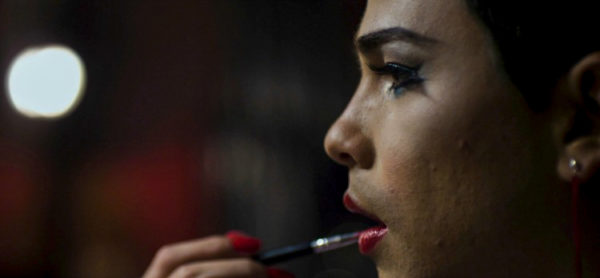
By Megan Tcheng
tchengme@grinnell.edu
The Cultural Films Committee invites students, faculty and community members alike to participate in an evening of cinema this coming Sunday, Sept. 18 at 5:30 p.m. in JRC 101.
The two-part event, which marks the committee’s first event of the semester, will feature a full-length screening of the critically-acclaimed Cuban film “Viva” (2015). The film will be followed by a short panel discussion with Professor Fredo Rivera ’06, Art History; Professor John Petrus, Spanish; Jackie Abing ’17; Frank Barca ’17; Armando Perez ’17 and Nelson Schicke ’18. A Cuban-themed meal will be provided following the film screening.
The event is part of a series of several film screenings hosted by the Cultural Films Committee every semester. The films, which are individually selected by professors and committee members, offer creative and intellectually-stimulating portrayals of cross-cultural issues.
Through the film screenings and interactive panel discussions, the Cultural Films Committee hopes to inspire new and thought-provoking dialogues between members of the campus community.
“I believe that [these films] have the potential to motivate wider, shared discussions on campus, not just about identity, but about our [personal experience],’ said Professor Katya Gibel Mevorach, chair of the Cultural Films Committee. “I hope that anyone who sees our movies will be able to witness the impact it can have on their own social experience.”
“Viva,” the featured film for Sunday’s event, will provide an ideal platform for shared discussion. The Academy Award nominated coming-of-age story follows the exploits of a young, Cuban man as he pursues his dream of becoming a drag performer. Struggling to balance his developing identity with the expectations and norms of his Cuban culture, the character reconciles his personal expression with his cultural reality.
Describing the cultural context of the film, panel speaker Rivera emphasized the film’s expansive socio-political commentary.
“The film does a really good job of portraying many of the realities of life in Cuba today, particularly the issues of ‘machismo’ [masculine pride], the developments within drag culture and the growing economic realities of life in Cuba,” Rivera said.
Abing similarly attested to the film’s important message about cultural and personal acceptance.
“The film is about how you find your voice, your power and your sense of self in an [unaccepting environment]. I think that is part of what is so magical about this film — it shows you how you can bridge this unacceptance and shame, and turn it into something truly powerful,” she said.
In preparation for the upcoming event, the Cultural Films Committee encourages participants to take a break from their Sunday routines in order to attend the hour and 40 minute film screening.
“I know that we are planning [this event] in an overscheduled calendar,” said Gibel Mevorach. “Nonetheless, we hope that this occasion will get people out [of their normal routine]. When you are invigorated intellectually, you will go back to your studies in a much more energized way.”


















































